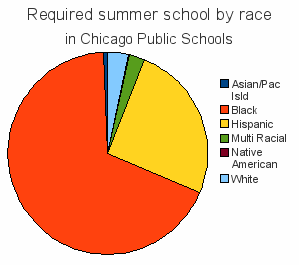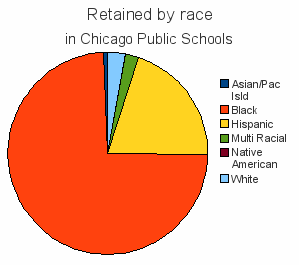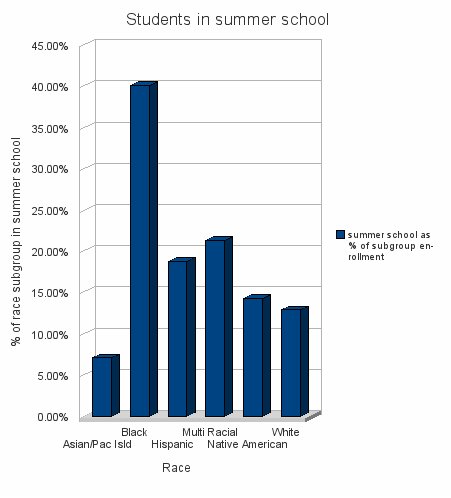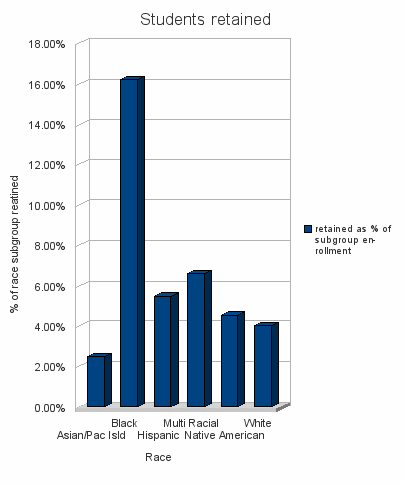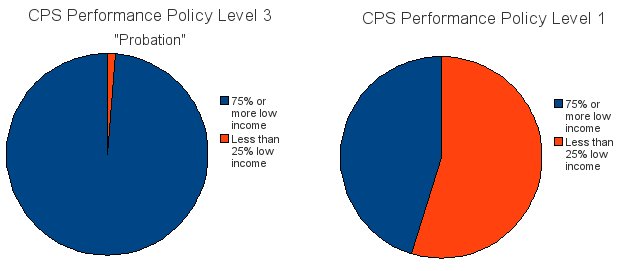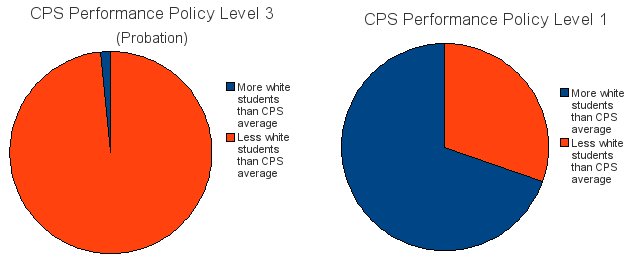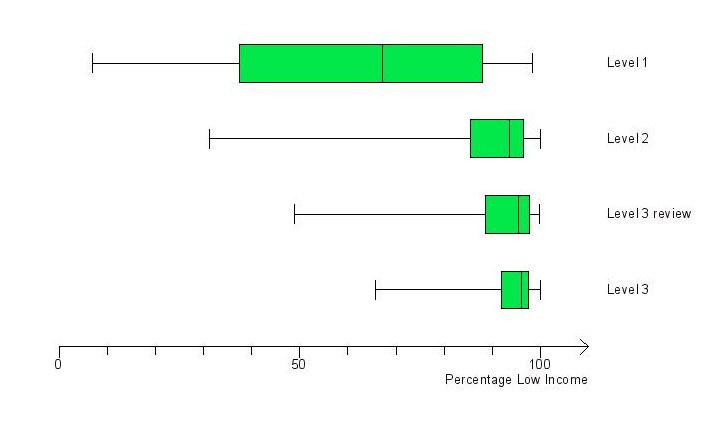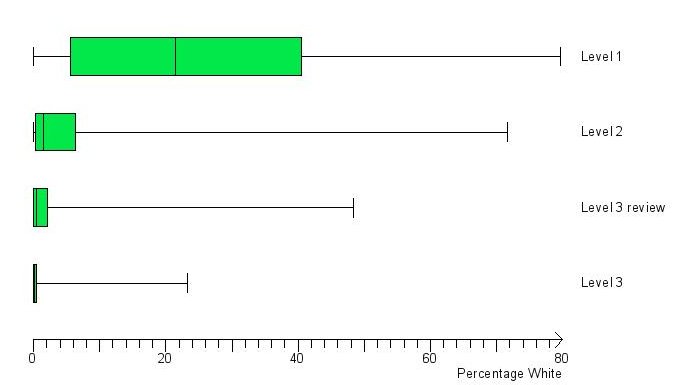“I’m just stupid, mom.”
That was one third-grader’s response to her parents’, teacher’s and principal’s disbelief that she had to attend summer school based on the results of a state test. Never mind that Christine* was enrolled in a gifted program, nor that she got A’s and B’s, nor that she had near perfect attendance, nor that she did fantastic projects, nor that she had an intense interest in learning. Chicago Public Schools’ promotion policy throws all that out the window if either the math or reading test score of a student comes back below the 24th percentile.
Christine’s did.
Her self-confidence was blown. She came to hate school because of a terrible experience in a summer school program that focused on test preparation. Her parents moved so that she could attend a new school in the Fall.
When Christine’s parents got another printout of Christine’s scores from her new school last Fall, it said she should have passed.
Chicago Public Schools bases their promotion policy on the Illinois Standardized Achievement Test, despite warnings sent with the test that explicitly prohibits such a policy. Because of that policy, Chicago Public School students were hit hardest by erroneous test scores sent back by the state on June 2, 2008. After Chicago Public School students had already been sent to summer school on the basis of those scores, the state had subcontractor Pearson re-equate and re-score the tests. After the re-scoring, 8,514 students in 3rd, 6th and 8th grade moved from below the CPS cutoff point of 24th percentile, to above the cutoff point, according to a Freedom of Information Act response obtained by Parents United for Responsible Education. Not all of these students were subject to the promotion policy. And 6th and 8th graders are allowed two years of tests to determine promotion, while 3rd graders are allowed only this one. However, it is safe to say that thousands of students were erroneously sent to summer school based on a combination of faulty test scores and a CPS promotion policy that uses those test scores to override all other considerations.
A petition to change the CPS promotion policy has been started at:
http://bubbleover.net/cps-promotion-petition/
*Name has been changed to preserve anonymity.
This article previously published on Substance News.

